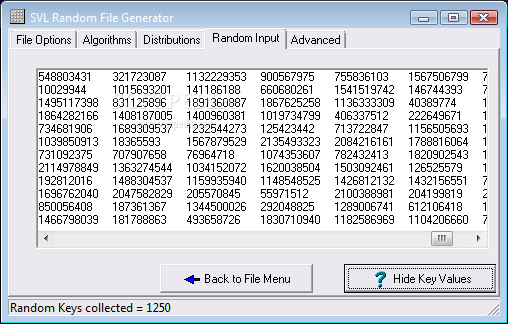Question: If a server uses /dev/random to generate the random session key with a client. Please describe how you can launch a Denial-Of-Service (DOS) attack on such a server. 2.5 Task 5: Get Random Numbers from /dev/urandom Linux provides another way to access the random. A session key is a single-use symmetric key used for encrypting all messages in one communication session.A closely related term is content encryption key (CEK), traffic encryption key (TEK), or multicast key which refers to any key used for encrypting messages, contrary to other uses like encrypting other keys (key encryption key (KEK) or key wrapping key). Running applicationmastersessionkey.exe reads the Device Public Key and ECDH Authorization Certificate from the lookup file, verifies that Certificate, generates a Random Challenge file, and produces the Session Key according to the process outlined in Figure 6, assuming device page data is all zeros.
This class provides the functionality of a secret (symmetric) key generator.Key generators are constructed using one of the getInstance class methods of this class.
Generating AES 256 bit key value. Does anyone know of a way to get a 256 bit key value generated from a pass phrase of any length? The encryption cannot be salted as the encrypted values need to be generated again and compared in the database. Microsoft office professional plus 2010 activation key generator free download. So a value must generate the same encrypted string each time it is encrypted.
KeyGenerator objects are reusable, i.e., after a key has been generated, the same KeyGenerator object can be re-used to generate further keys.
Generate A Random Session Key In Word
There are two ways to generate a key: in an algorithm-independent manner, and in an algorithm-specific manner. The only difference between the two is the initialization of the object:
- Algorithm-Independent Initialization
All key generators share the concepts of a keysize and a source of randomness. There is an
initmethod in this KeyGenerator class that takes these two universally shared types of arguments. There is also one that takes just akeysizeargument, and uses the SecureRandom implementation of the highest-priority installed provider as the source of randomness (or a system-provided source of randomness if none of the installed providers supply a SecureRandom implementation), and one that takes just a source of randomness.Since no other parameters are specified when you call the above algorithm-independent
initmethods, it is up to the provider what to do about the algorithm-specific parameters (if any) to be associated with each of the keys. - Algorithm-Specific Initialization
For situations where a set of algorithm-specific parameters already exists, there are two
initmethods that have anAlgorithmParameterSpecargument. One also has aSecureRandomargument, while the other uses the SecureRandom implementation of the highest-priority installed provider as the source of randomness (or a system-provided source of randomness if none of the installed providers supply a SecureRandom implementation).
In case the client does not explicitly initialize the KeyGenerator (via a call to an init method), each provider must supply (and document) a default initialization.
Every implementation of the Java platform is required to support the following standard KeyGenerator algorithms with the keysizes in parentheses:

- AES (128)
- DES (56)
- DESede (168)
- HmacSHA1
- HmacSHA256